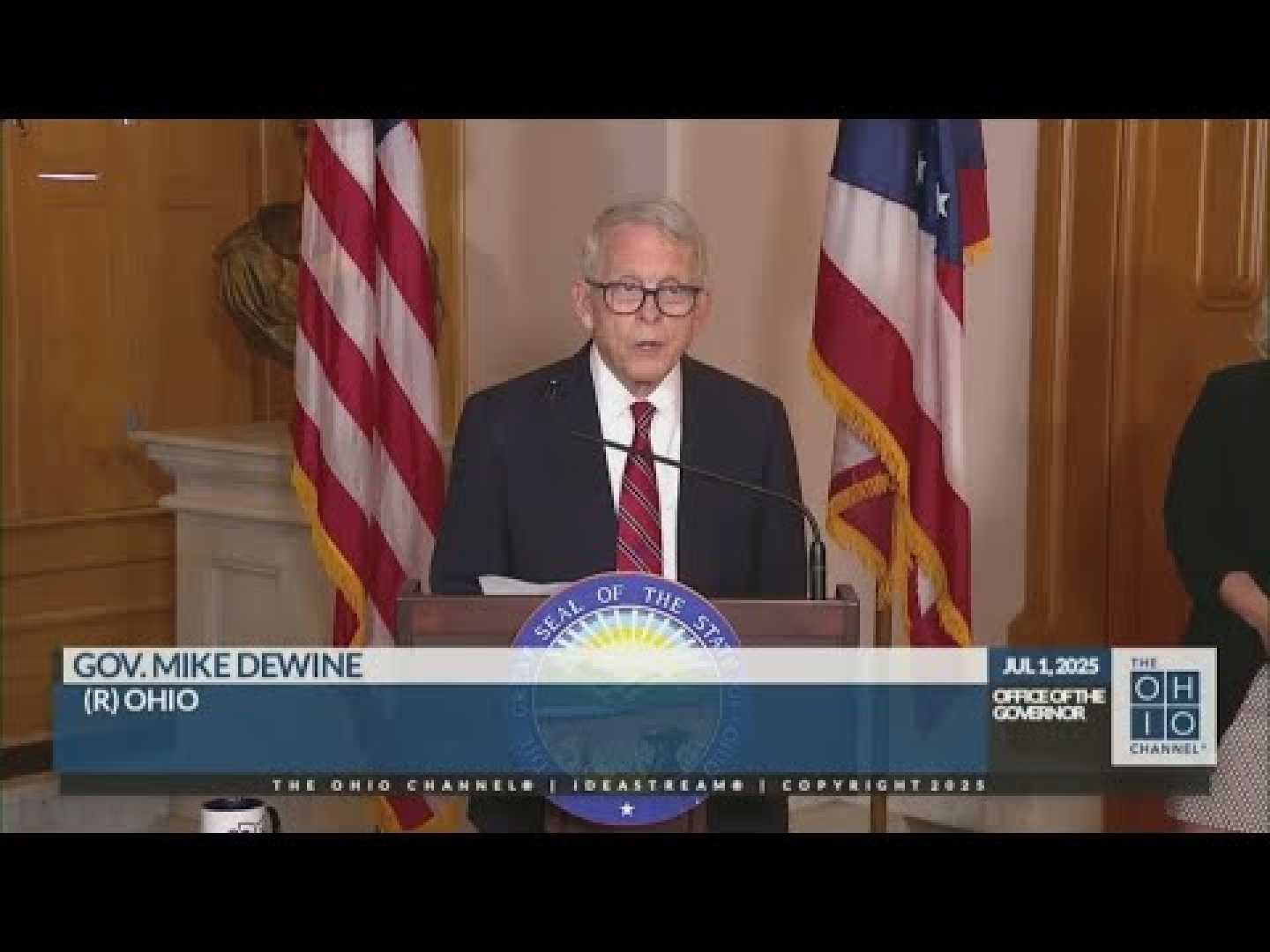Politics
Ohio Gov. DeWine Signs Budget Including Cleveland Browns Stadium Funding

COLUMBUS, Ohio — Ohio Governor Mike DeWine has officially signed the state’s significant operating budget, which includes funding for a new domed stadium for the Cleveland Browns. The governor announced his decision late Monday night, approving the approximately $60 billion budget that also implements tax cuts benefiting wealthy individuals.
The Browns will receive $600 million for the construction of their new stadium in Brook Park. Following the signing, Jimmy and Dee Haslam, owners of the Browns, expressed their gratitude in a statement, praising the collaborative effort from DeWine and Ohio lawmakers. They promised to create a fan-centric facility featuring a unique design and innovative features.
The statement highlighted the stadium’s potential to influence Northeast Ohio’s economy and attract visitors for various events, both sporting and cultural. The Haslams described it as a “transformative project” for the region.
Additionally, the budget allows the state to take legal ownership of $1.7 billion in unclaimed funds. This is a notable shift for Ohio, where unclaimed funds were previously held indefinitely. Under the new guidelines, individuals will have a decade to claim their money before it becomes state property.
The budget also revises a law that could have hindered the Browns’ move to the new stadium by making it more challenging for sports teams to leave publicly funded facilities. The adjustments are expected to ease legal hurdles for the team.
Furthermore, the approved budget includes a flat income tax of 2.75%, which eliminates the higher tax rate for high earners. While officials stated this change could result in a significant loss of revenue for the state, DeWine defended the decision during a press conference.
Many contentious provisions were vetoed by the governor. These include a prohibition against funding youth shelters that affirm social gender transition, a measure that would create savings accounts for students in non-chartered schools, and a rule restricting public libraries from displaying certain books. DeWine expressed his reasoning for the vetoes, emphasizing the need for certain standards and oversight in education and social services.
As the new budget takes effect, Ohio residents and lawmakers will be observing how the implementations will alter their community and fiscal landscape. DeWine’s decision to approve the budget reflects a significant shift in state funding priorities, including support for major sporting franchises.












